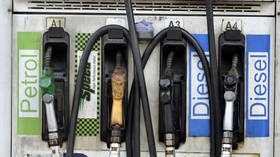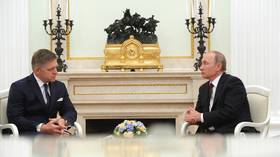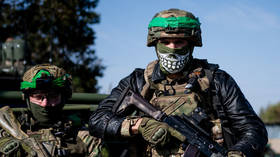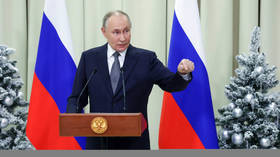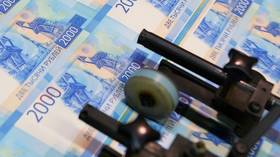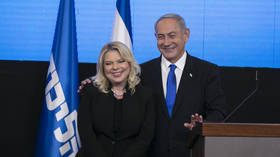Capitalism stinks: Something is rotten in Lebanon - and it's not just the garbage
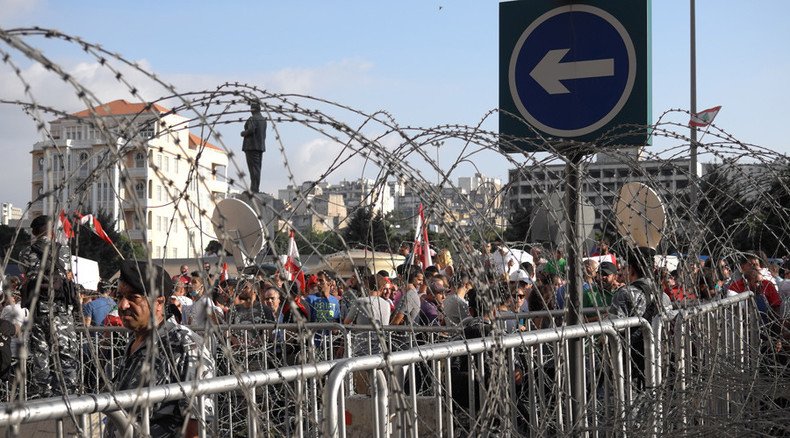
The anti-garbage 'You Stink' protesters in Beirut are shouting: “Revolution!” Red and white flags with a green cedar tree are flying, ambulances are howling, and water cannons are spraying demonstrators mercilessly.
For people like me, who have been making films and writing about those countless uprisings and destabilization campaigns, from Egypt to Syria, all this feels like déjà vu. It is only a matter of time when the balance gets tipped, when one of the protesters hits a police officer too hard, or when the security forces lose patience and decide to shoot teargas canisters and rubber bullets directly into the crowd.
“Is this yet another chapter of The Arab Spring?” I keep asking. “And if it is, then which Arab Spring are we talking about – that of the desperate people fighting for much better world, or the other “Arab Spring” of the imperialist interests, which are habitually injected by the West and by the Gulf States into the spontaneous rebellions?”
“La, la, la, la! No, no!” The demonstrators in front of the government building keep telling me, passionately. “We had enough. This is real rebellion. Nobody is controlling us.”
I just listen to them. I can confirm nothing. At this stage, nobody can.
And so, in Beirut, the shots are fired, and the poisonous black smoke is hanging over the city center. Tires are burning and once in a while, live ammunition is used.
“You Stink”! That is the name of the movement, of the ‘original protest’. A few days ago, people went onto the streets demanding the end of a protracted garbage crisis. For 18 years, the government was unable (or unwilling) to build a permanent garbage-recycling site. For 18 years, poor villagers near the “provisionary” garbage dump were suffering, getting poisoned, dying from unusually high levels of cancer and from respiratory diseases. Then, finally, they said “Alas! Enough.” They blocked the site. And after they did, the garbage began accumulating on the streets of Beirut. Instead of finding a permanent solution, the government sprayed white toxic rat poison over the piles of rotting trash. People in the capital began getting sick.
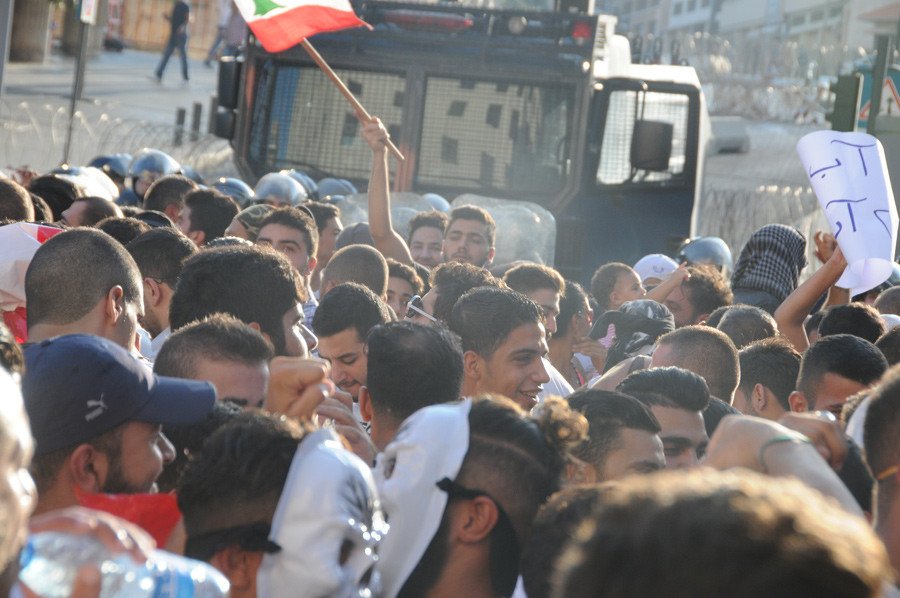
But it is not only the garbage that is making life in the capital, and in fact all over the country, almost unbearable.
One thing has to be understood: Lebanon is not Iraq, Libya or Syria. All these countries had strong leadership, and they had robust socialist and social programs (despised by the West): from medical care to education, public housing and pensions.
In total contrast, Lebanon’s government is dysfunctional, corrupt and divided. The country has been surviving over a year without a President, despite the Parliament gathering more than 20 times in an attempt to elect one.
Garbage was just the tip of the iceberg. The infrastructure of Lebanon is collapsing: there are water shortages and constant electricity blackouts. There is hardly any public transportation to speak of, almost no green public areas. There are land grabs all over the country. Health and education are at the disastrous levels. It is extremely brutal place for many.
Lebanon is perhaps one of the most capitalist countries on earth. There is almost nothing public, nothing socialist left here, anymore. And the savage capitalism (always prescribed by the Western “partners” for its client states) in Lebanon, as everywhere in the world, simply does not work.
The country hardly produces anything. There is more Lebanese people living abroad than in Lebanon itself, and it is remittances that are keeping the state somehow afloat. There is also substantial income pouring in from shady businesses in West Africa, in Iraq, but also income from the banking industry (mainly servicing the Middle East and the Gulf States) and from the narcotics grown in the Bekaa Valley.
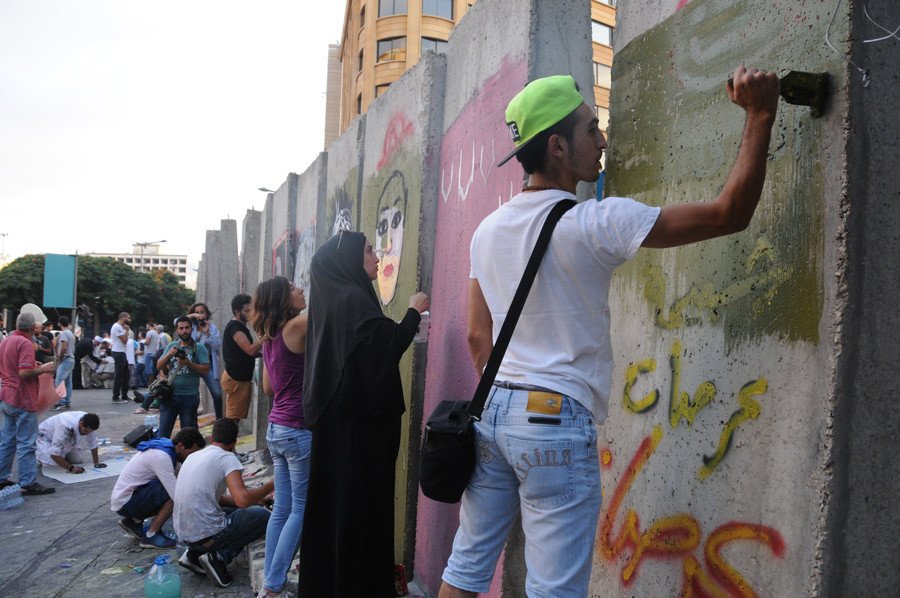
There is plenty of cash in individuals’ pockets and in the bank accounts, but almost no money for basic public services. Lamborghinis and Ferraris are racing at night along the Cornish, and the Zaitunay Bay Marina puts its counterpart in Abu Dhabi to shame. But most of the city is polluted, crumbling, and desperate.
In between those contrasting facades, desperate Syrian refugees are begging.
Nothing seems to be enough. Money comes in, and mysterious, big chunks of it simply evaporate.
Now the country is totally broke. Government sources claim Lebanon's public debt currently stands at about 143 percent of gross domestic product, and that next month the salaries of public workers may not be paid.
Lebanon is divided along sectarian lines: Christians, Sunni Muslims, Shia Muslims, and a small Druze minority. Because of sectarianism, there is hardly any national unity, or a “national project”.
Several protesters I spoke to claim that they are fed up with sectarianism and divisions. They want one, strong, united Lebanon. Or that’s what they say.
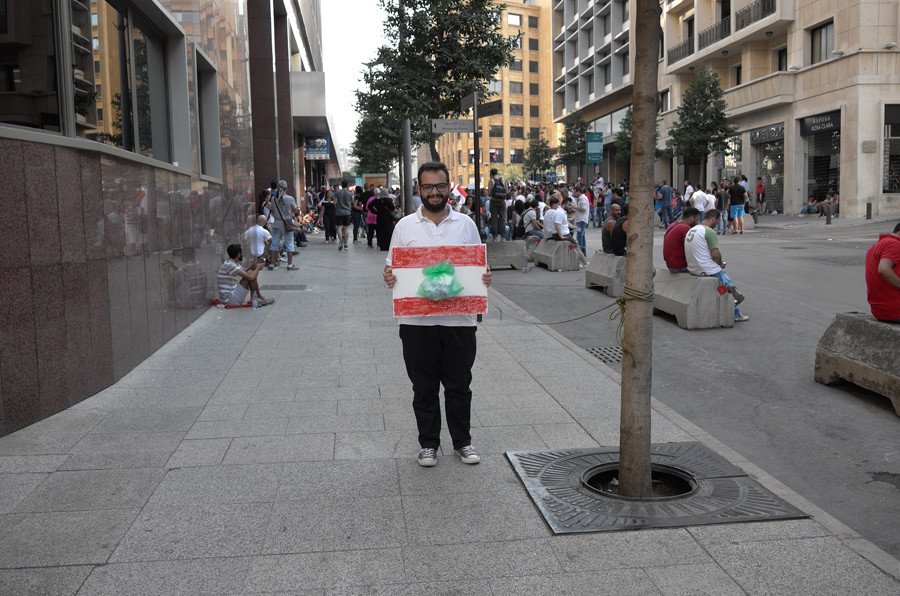
Ahmed, one of the demonstrators, a middle aged professional from Beirut, explained:
“I don’t want a Lebanon of Christians and Muslims. I want one Lebanon, one country, united!”
But there seems to be no ideology truly uniting these protesters. There are only grievances that they have in common.
Demands appear to be legitimate.
But in Lebanon, one cannot be certain of what lies below the surface. There are rumors that each religious group is now sending its fighters to the barricades.
For years and decades, competing political interests are pulling this tiny country in different directions.
“I spotted a guy who was protesting and who was obviously a British,” a diplomat based in Beirut who did not want to be identified, told me. “He was not a reporter; he was actually one of the protesters. And he spoke no Arabic. There are many bizarre characters at the protests.”
Who is who and who is with whom, is often extremely difficult to define.
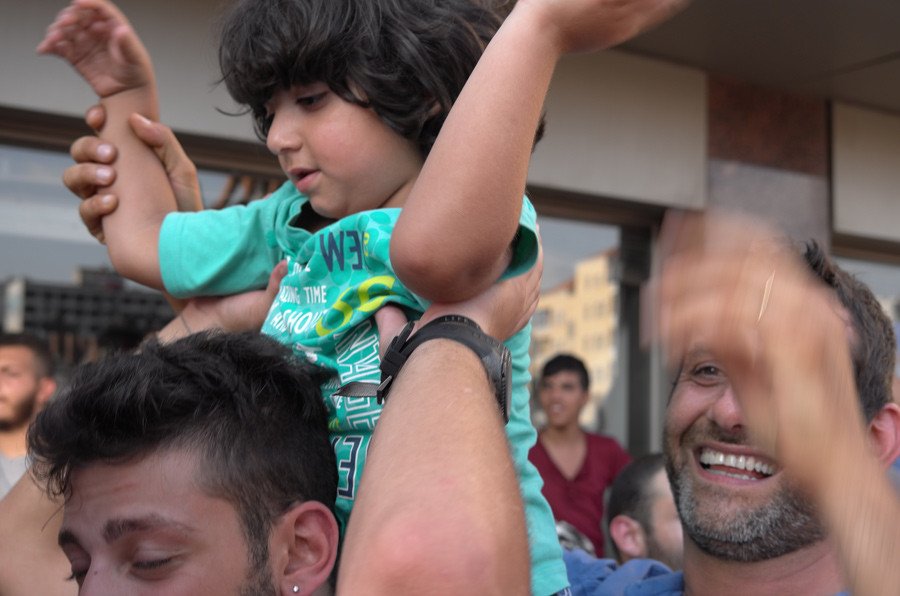
Allegiances of the Christians are mostly with the West. Sunni Muslims are closely allied with the Gulf States, and indirectly, with the West. Shia Muslims, including Hezbollah, are leaning towards Iran.
Almost everyone here agrees that Hezbollah is the only sound social force in the country. It is also aiming at uniting Lebanon, by reaching out to non-Shia groups.
Presently, Hezbollah is locked in an epic fight against the ISIL, a terrorist army that was originally supported and trained by the West, Turkey, and generally by NATO. Hezbollah is opposed to terrible acts of destruction that are being spread by the West and by Israel in this region. For that reason it is firmly engraved in the selective US terrorist list.
Lebanon is squeezed from all sides. Civil war in Syria fueled by the West has already forced at least two million Syrian people to cross the border and to seek asylum in this tiny country. ISIL is continuously trying to grab the territory in the northern part of Lebanon. While Hezbollah is doing most of the fighting against ISIL, the Lebanese army and security forces are trained in the West. Saudi Arabia recently paid for the French supply of arms to Lebanon. Israel is constantly threatening to invade. To add to the list of distresses, there has been renewed fighting in the Palestinian refugee camps in the south of Lebanon, with several dead and many injured.
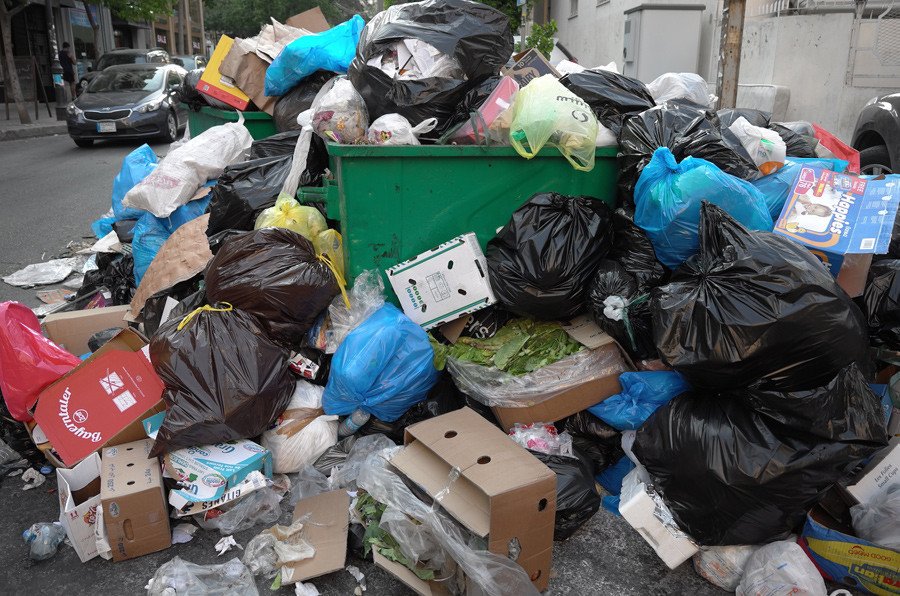
The West and the Gulf States are trying to maneuver and to control Lebanese political elite.
Only a united Lebanon can prevail. Only Lebanon that is free of imperialist manipulations. But could such a Lebanon be born, realistically, from this latest uprising?
There is no doubt that many protesters who are now fighting in the center of the capital are “genuine” and outraged citizens. But others are clearly not. The situation used to be the same in almost all other “Arab Spring countries”: initial desire for reforms and for social policies. Then the infiltration from several political (mainly pro-Western and pro-Saudi) groups followed soon after. Time after time, genuine agendas have been kidnapped.
Are all rebellions in the Arab world doomed from the start? Are they all going to end in the US and EU orchestrated coups, in bloody massacres and finally, in horrific collapses of the nations? Is the Libyan scenario really inevitable?
One of the leading professors at the American University in Beirut, told me recently: “This university is where most of the leaders from the Gulf States get educated. And those who are not, are actually dreaming that they would be.”
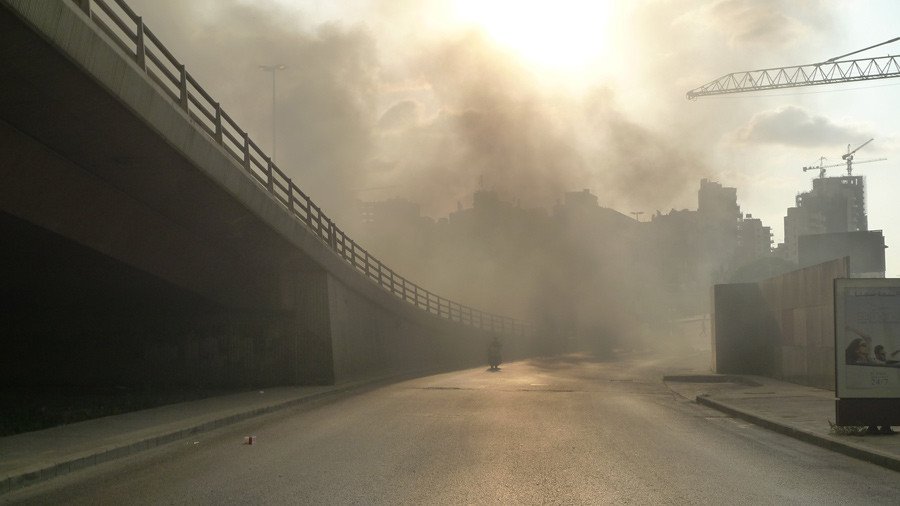
That says a lot. For many years and decades, Beirut was attracting those who wanted to taste the “Western world” without leaving the Middle East. This is where the indoctrination was disseminated, and where so many shady deals between the West and the local rulers and movers were sealed.
A few thousand protesters in the center of Beirut are closely watched. It goes without saying that each and every move they make is being analyzed, and that the West is going to try to turn the events to its advantage.
This does not mean that one should not try to improve the world, or to fight for a much better country. But it means that those few genuine protesters will have to face the leaders of the savage Lebanese capitalist establishment, backed by the West, and the Gulf States. They will also have to face those other protesters who already managed to infiltrate this small rebellion, and who are handled by the various political interests.
The statements, views and opinions expressed in this column are solely those of the author and do not necessarily represent those of RT.
LISTEN MORE:
The statements, views and opinions expressed in this column are solely those of the author and do not necessarily represent those of RT.



